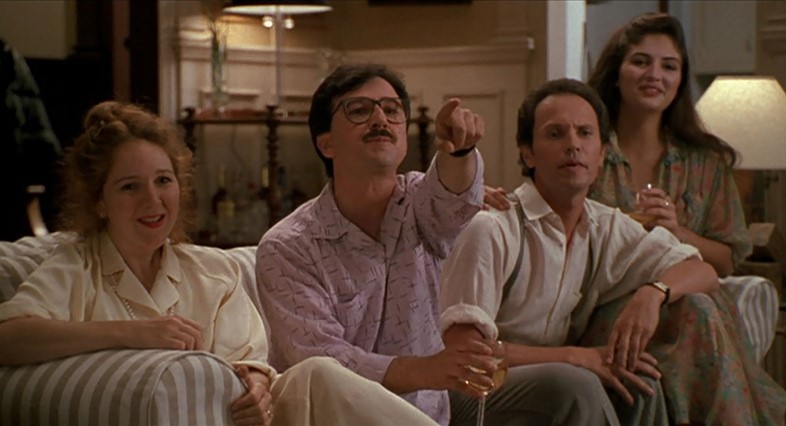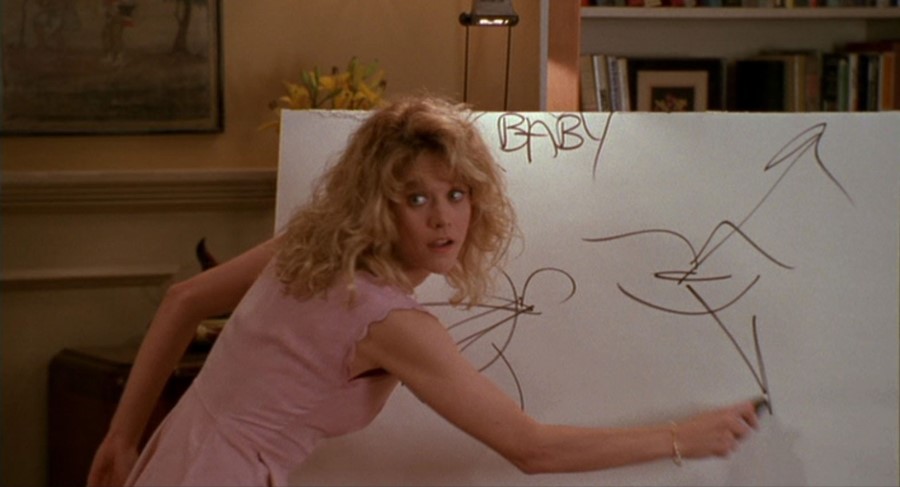The late writer’s running charades parties were famous throughout Hollywood. Rachel Hodin hears from some of her regular guests
It’s a warm Saturday night in late June, and I’m slapping my left forearm with my right hand – all five fingers, to be sure – about four inches from Joy Behar’s face. A successful TV exec yells out something about syllables, and the host of the night, as if swatting a fly from her arm, instinctively snaps, “Oh would you shut up already?!” Harsh, I think to myself, but not undeserved; the man is clearly slowing us down.
“Five words!” Behar shouts. I tap my nose. One point for Behar. I hold up one finger – to the group, but mainly to Alan Alda, as if to say, “now just you wait one moment,young man”. “First word,” Alda says. I tap my nose with approval as I hear the faint sound of “RUN!!!” echoing from the living room. Is this some sort of party, you might be wondering. White collar prison? This, my friends, is running charades. It’s where all inhibitions and decorum go to die, and Hollywood loves it. Nora Ephron’s Hollywood, that is.
To play, you need at least 35 people and for each person to bring a charades list. Everyone is split into multiple teams, each team – all sitting in separate rooms – competing against each other for the same charades list, chosen at random. First up on each team begins by running into a separate room, where they’re told the first item on the list by the list’s creator (sitting out this round), and then running back to their team to act it out. Whoever guesses correctly is up next, runs into the other room to retrieve the next item on the list, and so on. Yet in order to win, your team must not guess the entire list correctly, but rather the theme of said list; for, essential to everyone’s lists is that each has one overall theme.

The exact trajectory of running charades is a mystery, but, indisputably, it was born in LA. From there, it descended upon the Hamptons like a flock of Blade helicopters. Everyone from Bob Balaban and his wife, to Broadway producer Jerry Minskoff, actress Marlo Thomas, and Judy and Jerry Della Femina hosted running charades parties, with Stephen Spielberg, Darren Star, and Marshall Brickman oftentimes in attendance – among many others. Yet it was Nora Ephron who eventually seized control of all east coast running charades parties, becoming the game’s unofficial spokeswoman.
And the term “seized control” is no euphemism; at her parties, running charades resembled The Hunger Games more than an actual game. The goal was not, as Judy Della Femina tells me, “to have a good time and yuck it up”. The goal was to win; but, more crucially and far more implicitly, the unspoken aim was to come up with the hardest-to-crack, most ingenious theme. And Ephron would let no running charades rookie get in the way of that. “Some of the themes are insane,” Bob Balaban tells me. “Nora once did a list that was so complicated; if you took the first letter of each of the items on the list, it spelled out ‘weapons of mass destruction.’”
“Nora once did a list that was so complicated; if you took the first letter of each of the items on the list, it spelled out ‘weapons of mass destruction’” – Bob Balaban
Which, in hindsight, was a rather apt choice given her disarmingly militaristic approach to the game. “If it was your first time [playing at her house],” Della Femina says, “it could be a little terrifying.” Ephron, it seems, assumed the role of competitive mother to her running charades guests. The sort of mom who fights with the ref at her son’s soccer game, and then spends the ride home critiquing him on his form. “She took it very seriously,” Della Femina continues, “She wouldn’t talk to [my husband] Jerry one year because she couldn’t guess his theme. It was a list of songs, and the common theme was they were all sung by blind, black singers.”
Still, she relished the fight as much as the win. As such, she chose the guestlist for these parties with fervent care. “She liked to have an interesting mix of people,” Della Femina says. “But she really wanted to make sure they could play.” Or, as Marlo Thomas put it, “It’s not as much fun to watch somebody ham and haw and not know what to do.” Indeed, Mr. Balaban wouldn’t even name the regulars at Ephron’s running charades parties, for fear of hurting the feelings of anyone not invited.
After Ephron passed, running charades took a bit of a hiatus, but in recent years it’s been revived by the Della Feminas, who now hold a running charades party in her honour at their Bridgehampton home every summer. Which is how I found myself, this past June, nearly blackout, shushing Joy Behar while trying to pantomime the word ‘countess’.
Because that’s another thing about running charades: while playing, everyone’s an equal. It’s a game that asks you to leave your titles and IMDB page at the door, and to come ready to get your hands dirty. Which is telling for someone like Ephron; despite growing up as part of Hollywood royalty, she remained as humble up until the day she died. She could have easily taken the path of least resistance; instead she went the way of charades – and took off running.
